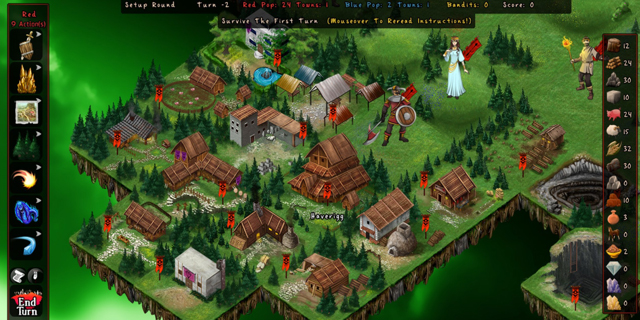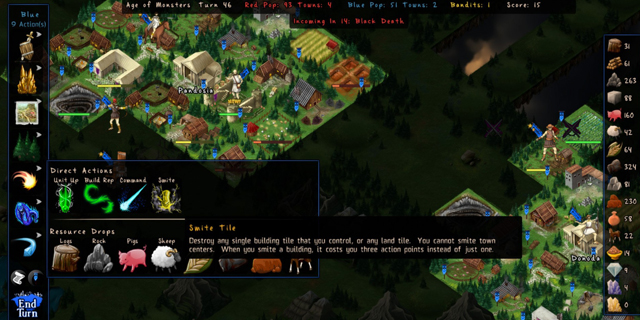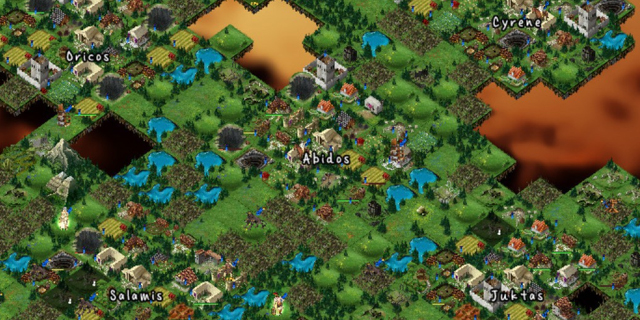
When designing a “god game,” it is very important to make the player feel powerful, yet still include a game with difficulty. With Arcen Games’ Skyward Collapse, this balance is hit very well. Skyward Collapse offers some twists on the usual formula. For one, you don’t continually choose between benevolent and vengeful. You don’t have to follow the usual good-versus-evil trope. You are largely indifferent to the daily lives of your subjects, and you don’t need them to worship you. You simply want them to fight.
Your world is a large floating landmass, with two factions living on its surface: the Norse and the Greeks. Naturally, they are at constant war with each other. Not much goes into why they are fighting, and there’s no real narrative driving them: one can assume land, ideology or any number of other reasons. Given their different mythologies, you could even assume religion, despite the player being the god of both civilizations. Your task, as their god, is to maintain the balance of power, and prevent either side from being annihilated by the other. You do this in a Civilization-style turn-based setting. After each set of turns (one for each faction), their units will move on their own.

Most of the “victory” conditions here are purely set as a means to maintain a gradual increase in power, more than anything else. You accumulate score by having your two factions battle, and you need to reach certain score values within a set number of turns to advance to the next Age. There’s no real reason for these two armies to fight, other than perhaps the amusement of a bored deity who just happens to be lording over this particular floating landmass. But for those who find a more sandbox experience boring, it’s nice to have a goal to work toward, even if it isn’t directly related to whats going on in the game.
Your interactions with each faction are limited to building their economic and military structures and creating mythological units to turn the tide of battle. These units have strengths and weaknesses that you can exploit to maintain an element of control and prevent them from rampaging across the countryside. Once you have built structures to generate military units, or have created some of your own, they are no longer under your control. You build resource-generating structures, resource-refining structures and military production buildings for both sides, which will automatically generate an army to fight the other side. Skyward Collapse is a new take on the god game, but it’s also a new take on turn-based strategy; it requires a different way of thinking when your goal is a stalemate.

The added wrinkle here is a little bit of randomness. Sometimes, units will wander aimlessly. Natural disasters happen, and you don’t cause all of them. Creatures don’t always do what you expect them to. Sometimes, bits of your landmass will fall into the void, leaving impassable terrain. Minor gods appear and will accept bribes to make changes to your world. These can be both good and bad, depending on how your factions are doing.
The interface is sometimes a little obtuse. As someone used to the vast amount of data in a game like Civilization, it can become difficult to see why resources aren’t building up at times, and you don’t have much advance notice about what units factions are producing until they appear.
Skyward Collapse provides a great experience for fans of both god games and turn-based strategy. It doesn’t quite offer the immense depth of something like Civilization, but as a result it becomes a game you can play without such a huge time investment.
Pros: Novel premise, interesting mechanical push-and-pull
Cons: Interface is a bit hard to learn



















